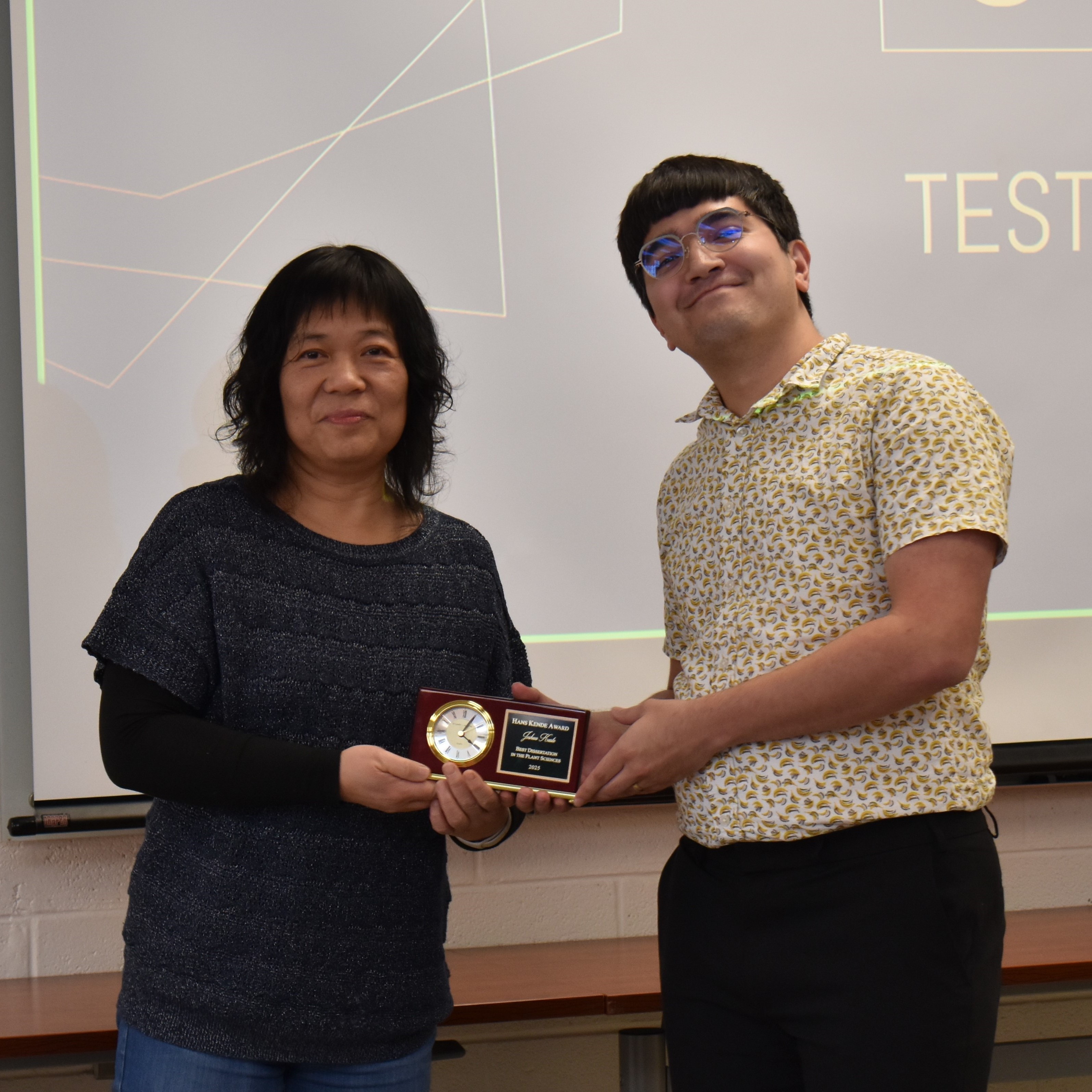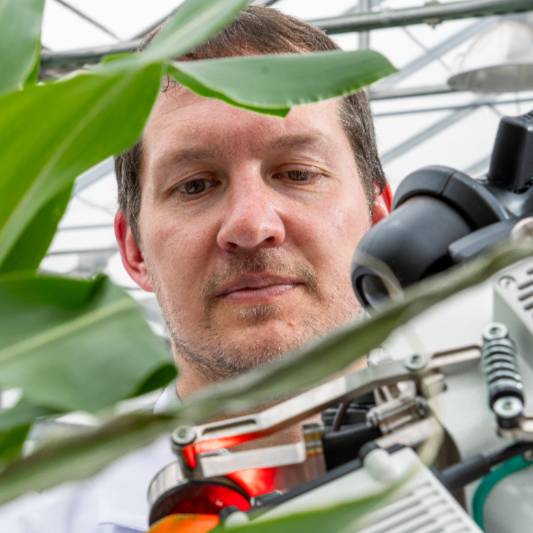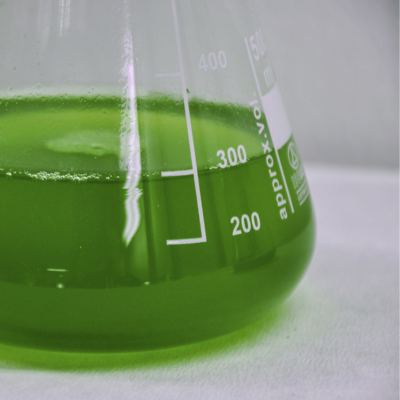Graduate student Luke Gregory on his immersive internship at Bayer
Food security is an important area of study to Walker lab graduate student Luke Gregory. That’s why when he found an internship for Bayer on LinkedIn, he knew it was the one for him.
Bayer’s vision “Health for all, hunger for none,” interested Luke.
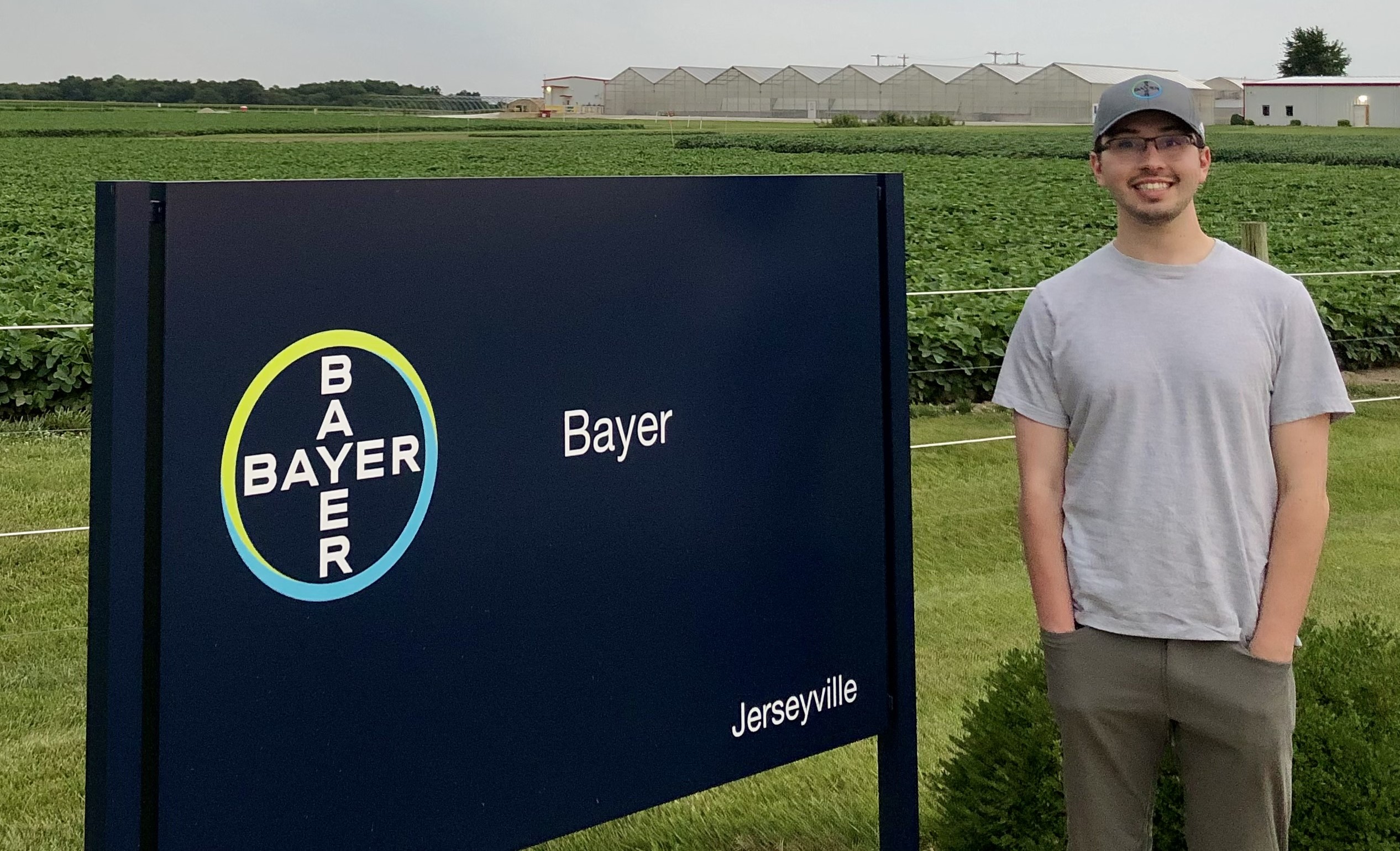
Courtesy photo
“Being a plant scientist… it’s something I think about in my own research and work. It aligns with my ambition to address agricultural challenges using science-driven innovations, systems-level thinking and data analytics,” said Luke, who is a graduate student at the MSU-DOE Plant Research Laboratory (PRL) and the Department of Plant Biology.
Luke was offered the position and moved down to Jerseyville, Illinois in May where he’d be spending the next three months working as a crop physiology intern.
During time spent at his desk, Luke would analyze data that was taken from field research done by unmanned aerial vehicles (UAVs) to reconstruct field canopies to extract biological parameters. He noted that he used programming skills that he picked up from the PRL, which translated seamlessly into his work at Bayer.
When asked about the part of his internship spent in the field, Luke had a lot to say about the differences of working in a lab versus in the field.
“In the PRL, my research primarily keeps me in a laboratory environment with unrestricted access to equipment,” Luke said. “Whereas during the bulk of my internship I operated out of a mobile vehicle between various field locations. Therefore, it was crucial to ensure we had all our equipment before setting out each morning.”
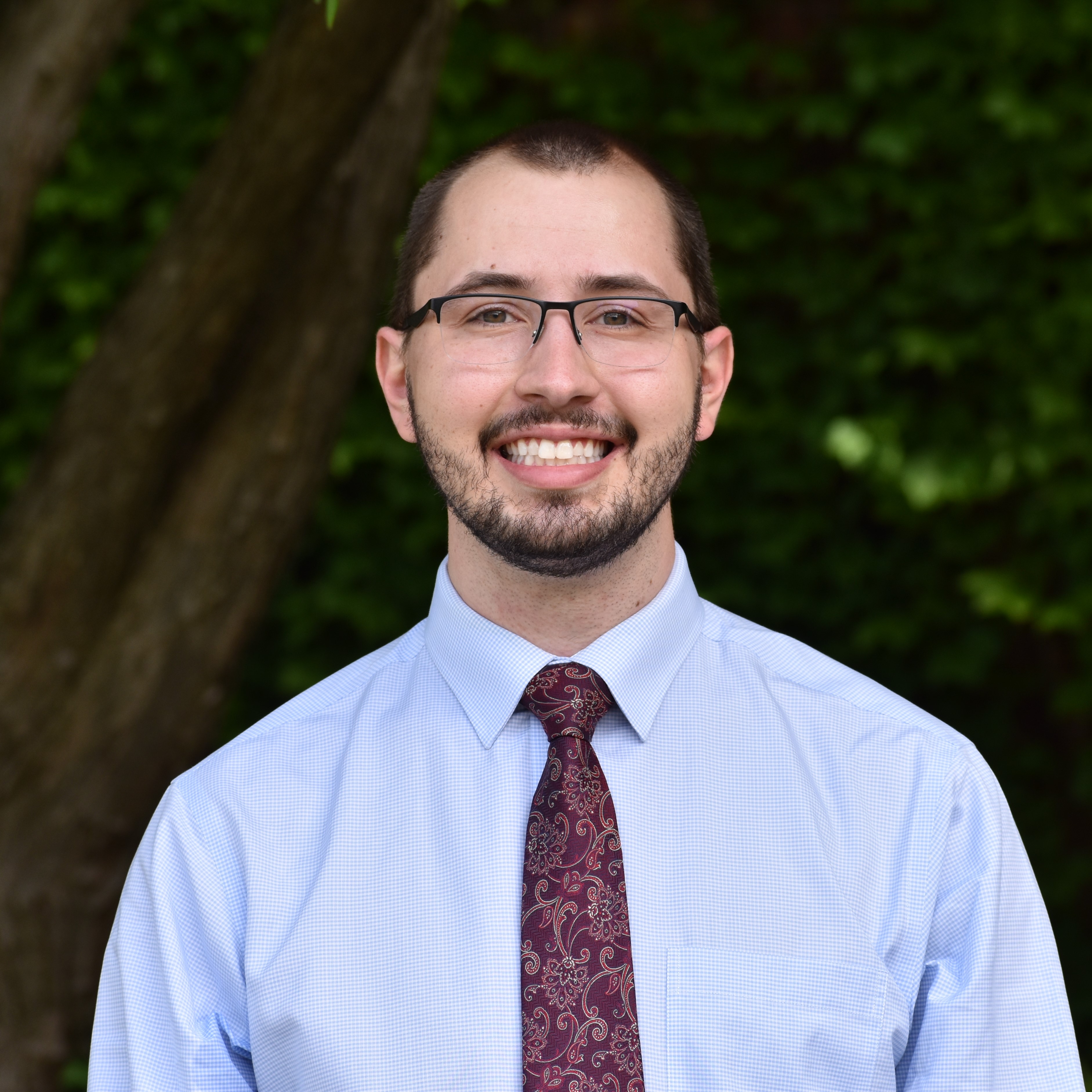
By Kara Headley, PRL 2022
There was a lot of physical work, like pulling corn out of the ground for phenotyping or measuring how light was being transmitted through corn canopies. Field phenotyping approaches were things that Luke had never had the opportunity to do before, which he said, “were really fun to learn.”
When Luke wasn’t in the field or at his desk, he would be in meetings to communicate what he and his team were finding.
Back at Michigan State in Berkley Walker’s lab, Luke would go to Berkley and talk about his research in a very matter-of-fact way. As a scientist in an industry position, he discovered new communication challenges working alongside non-scientists.
Because of this, he needed to figure out the “bottom line” and “interpret and communicate it all really succinctly,” Luke said.
In academic science, Luke mentioned that he’s always been able to communicate his work to the public and other scientists. At his internship, however, he was asked not to share his work publicly. Keeping the research private was one large difference Luke noted in doing research for a private company versus in academia.
During his internship, Luke enjoyed taking advantage of the workshops that Bayer’s HR department put on, where he learned more about negotiating compensation, resume building for industry jobs, and crops science 101.
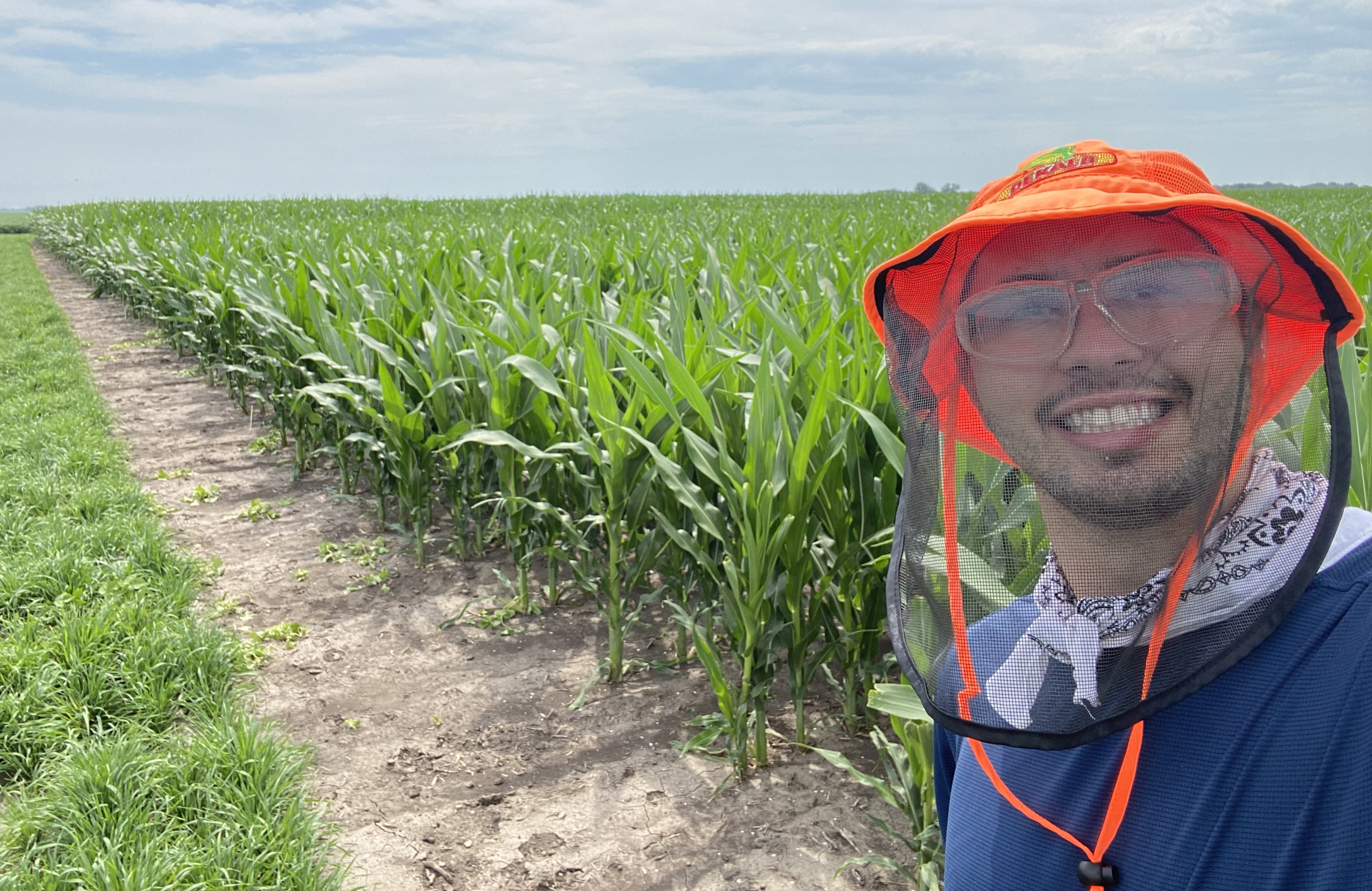
Courtesy photo
He also mentioned that there were many natural networking opportunities. Because the internship was so team-based and focused, Luke met plenty of people who were willing to write letters of recommendation, bounce off future ideas and provide job opportunities.
“The intimate environment was nice because I got to know a lot of people. I would have real conversations with these people… especially in the teams I worked with,” Luke said.
Luke emphasized that he’s always encouraging people to do internships because of how great his experience was.
“Whether you’re an undergraduate or a PhD student like me: you should do an internship.”
Internships can provide opportunities and experiences that aren’t typically given in the classroom. They can show you that “[you] can exist and [you’re] fully capable of doing this job!”
Luke knows that he isn’t alone with his positive intern experience: “Others I’ve talked to who have done internships have always had a great experience!”
By Abby Aldrich
